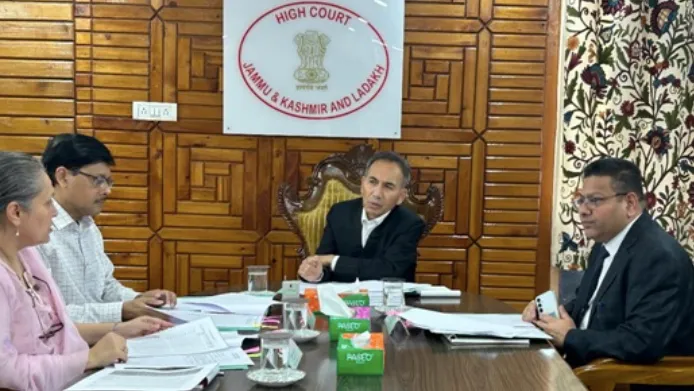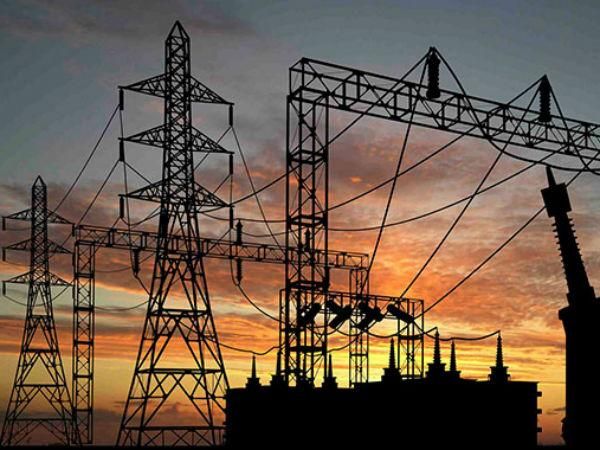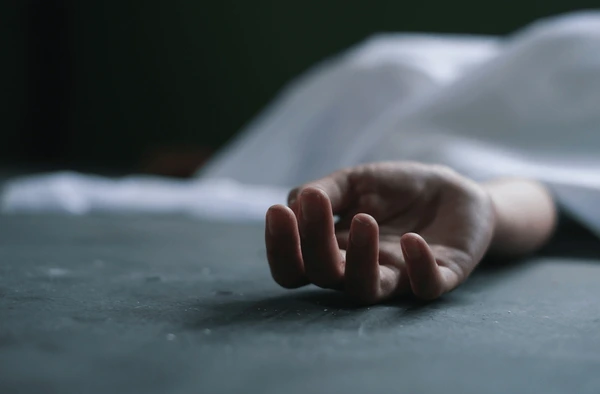CJ to Constitute Special Bench to Hear Petition Filed by Ravinder Kumar Sharma on Oct 21
A special Division Bench, to be constituted by the Chief Justice J&K & Ladakh High Court, Justice Tashi Rabstan, will hear a Public Interest Litigation (PIL), challenging the power vested with the Lieutenant Governor of J&K to nominate five Members of Legislative Assembly (MLAs), on October 21.
The Chief Justice (CJ) Rabstan agreed to constitute this special bench for Monday (October 21) to hear the matter after the Counsel for the petitioner, advocate D K Khajuria on Thursday mentioned the matter before him (Chief Justice) and requested for the early listing of the petition.
The petition has been filed by Ravinder Kumar Sharma, a lawyer, former MLC and Chief Spokesperson of the J&K Pradesh Congress Committee (JKPCC).
Sharma, in his petition, has challenged the provisions of J&K Reorganisation Act, 2019 as amended (Section 15) in December, 2023, empowering the Lieutenant Governor to make nominations of five MLAs.
The petition has contended that the Lieutenant Governor is supposed to seek the aid and advice of the Council of Ministers before making nominations, otherwise, the provisions are ultra-vires to the basic spirit and structure of the Constitution.
Khajuria mentioned that the matter was of an urgent nature and it would be argued by Senior Supreme Court lawyer Dr Abhishek Manu Singhvi. In this connection, the Counsel (Khajuria) also read out the order of the Supreme Court, which had given liberty to the petitioner to approach the J&K and Ladakh High Court in the matter.
Chief Justice Rabstan acceded to the request and agreed to constitute a bench for hearing on Monday.
Advocates Anuj Mahajan and Ayush Pangotra assisted Khajuria.
Petitioner Ravinder Sharma was also present in the court at the time when the special mention was made.
Later speaking to Greater Kashmir, the petitioner Ravinder Sharma, stated, “We moved to the court after the BJP claimed in the media after the polling that five members of the ruling party would be nominated, adding to its (BJP’s) tally for staking claim to the formation of the government. It would have been a negation of the mandate of the people hence the Congress had immediately reacted to the issue in anticipation.”
“The party had immediately approached the Supreme Court and filed a petition on October 8, on the day of counting, to be specially mentioned in case of a hung assembly to checkmate BJP from negating the mandate. However, the mandate gave a clear majority to the NC-Congress coalition as a result, the petition came up before the Division bench of the Supreme Court on October 14,” Sharma stated while delineating the reason as to what necessitated the filing of the petition.
Notably, on October 14, the Supreme Court had refused to entertain this petition, anticipating nominations by the J&K LG, with the direction to the petitioner to approach the jurisdictional High Court first.
“We are not inclined to entertain the present petition under Article 32 of the Constitution of India and give liberty to the petitioner to approach the jurisdictional High Court by way of a writ petition under Article 226 of the Constitution of India,” the apex court Division Bench, headed by Justice Sanjiv Khanna, had said.
As per the amended Act, LG can nominate two women, two Kashmiri Pandits (including a woman) and one resident of Pak-occupied Jammu and Kashmir (PoJK) to the J&K Legislative Assembly.






